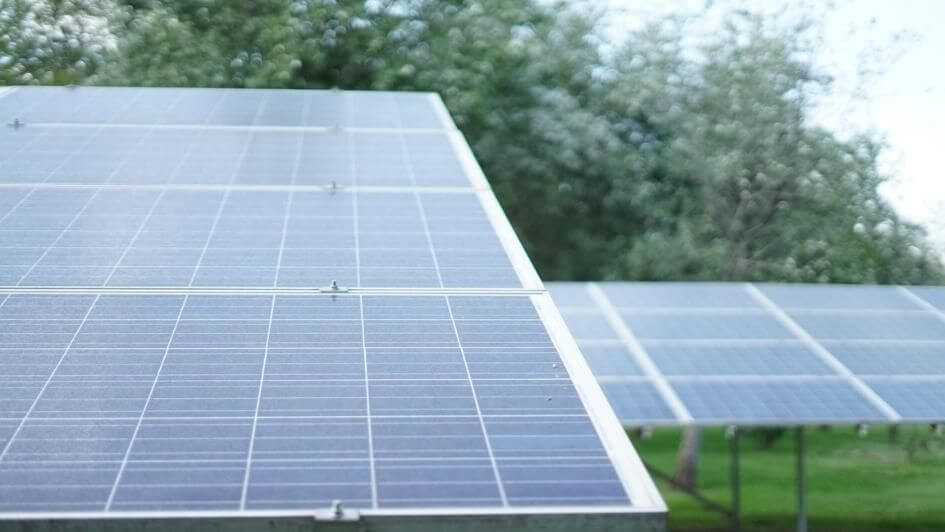Over 50 years ago, the World Health Organization (WHO) declared that access to quality health services is a fundamental human right. This declaration is echoed by SDG 3 (“Ensure healthy lives and promote well-being for all at all ages”). However, today only half of the global population has access to health care. One of the main barriers to achieving SDG 3 is the lack of sufficient and reliable electricity. The current COVID-19 crisis has brought into sharp focus the inadequacy of Africa’s healthcare infrastructure—including access to energy—especially in remote rural areas.
Many rural health centers, due to their distant proximity to a power grid, cannot easily access reliable, affordable energy. As a result, nearly 60 percent of all healthcare facilities in sub-Saharan Africa have no access to electricity. Of those that do, only 34 percent of hospitals and 28 percent of health clinics have reliable, 24-hour access. In this context, distributed renewable energy (DRE) solutions, and in particular mini-grids, present a key opportunity to provide clean, reliable, and cost-effective electricity to health centers, which can dramatically transform the quality of healthcare services provided to rural communities in the country.
Zambia’s Action Plan to Solarize Rural Health Centres
The Government of Zambia has made a significant step forward in its efforts to transform the quality of health services offered to poor and vulnerable rural communities in the country with the recent launch of an Action Plan to provide reliable and affordable electricity to unserved medical centers using solar. This Action Plan aims to support the government’s goal of providing equitable quality health services for all as laid out in its Vision 2030.
The Action Plan, and accompanying Open Letter to funders, charting the way forward for the solarization of health centers in Zambia was launched by the Minister of Health Hon. Silvia T. Masebo, MP, at the Off-Grid Solar (OGS) Investment Forum hosted by the Ministry of Energy with support from the UKAID-funded Africa Clean Energy Technical Assistance Facility (ACE-TAF), in partnership with Power for All on the 8th of July 2022.
The Health Minister noted that the Action Plan marked an important milestone in improving the access and quality of health services for the people of Zambia, as lack of access to reliable electricity was a major stumbling block in the delivery of essential services - from providing lighting for safe emergency night-time care and childbirth to refrigeration of blood and vaccines, sterilization facilities, and running simple medical devices.
Over half (57 percent) of the country’s 18 million inhabitants have no access to electricity, according to World Bank’s data. This not only affects families in their homes but also in accessing essential services – the majority of rural health clinics have limited or unreliable access to electricity. Of all the main health facilities in rural areas in Zambia, only a third of them (37 percent) have a functional connection to the grid.
The Action Plan outlines the way forward in overcoming the barriers to improved healthcare delivery in the country with respect to energy access. The key focus of the Action Plan is on the solarization of the identified health clinics and ensuring long-term operational sustainability of the equipment. The Open Letter addresses funders and implementing organizations to call for funding of USD$50 million to electrify and operate 1000 identified health centers in Zambia.
The preparation of the Action Plan and the Call to Action began in 2021. The Africa Clean Energy Technical Assistance Facility (ACE-TAF) with funding from the Foreign, Commonwealth, and Development Office (FCDO) of the UK government, Power for All, and the World Resources Institute (WRI) partnered with the Zambian government, through the Ministries of Health and Energy, to quantify the current status of healthcare electrification, analyze the need and cost of addressing the current gap, and to facilitate a national consensus on the best path forward to a comprehensive solution.
To this end, a multi-stakeholder health coalition of over 100+ stakeholders ranging from financiers, health organizations, civil society, technical institutions, academia, companies, and the Zambian government was formalized. During the pandemic, the coalition held meetings to develop an action plan to make the electrification of rural health centers with decentralized renewable energy a reality. Representatives from the Ministries chaired and actively participated in these discussions.
“The development of the off-grid sector is an important way for the Government to electrify the rural health facilities, improve livelihoods of the poor and vulnerable communities, and make strides in the achievement of Universal Health Coverage,” said Hon. Masebo during the launch.
The Zambian health coalition is now integrated into the Off-grid Taskforce initiative under the Ministry of Energy, which will continue to monitor the progress and implementation of the Action Plan. Power for All and ACE TAF will continue to facilitate discussions between the Ministry of Health and potential funders, and investors who are interested in being part of this change towards achieving the dual goals of SDG 3 and SGD 7 in the country.
